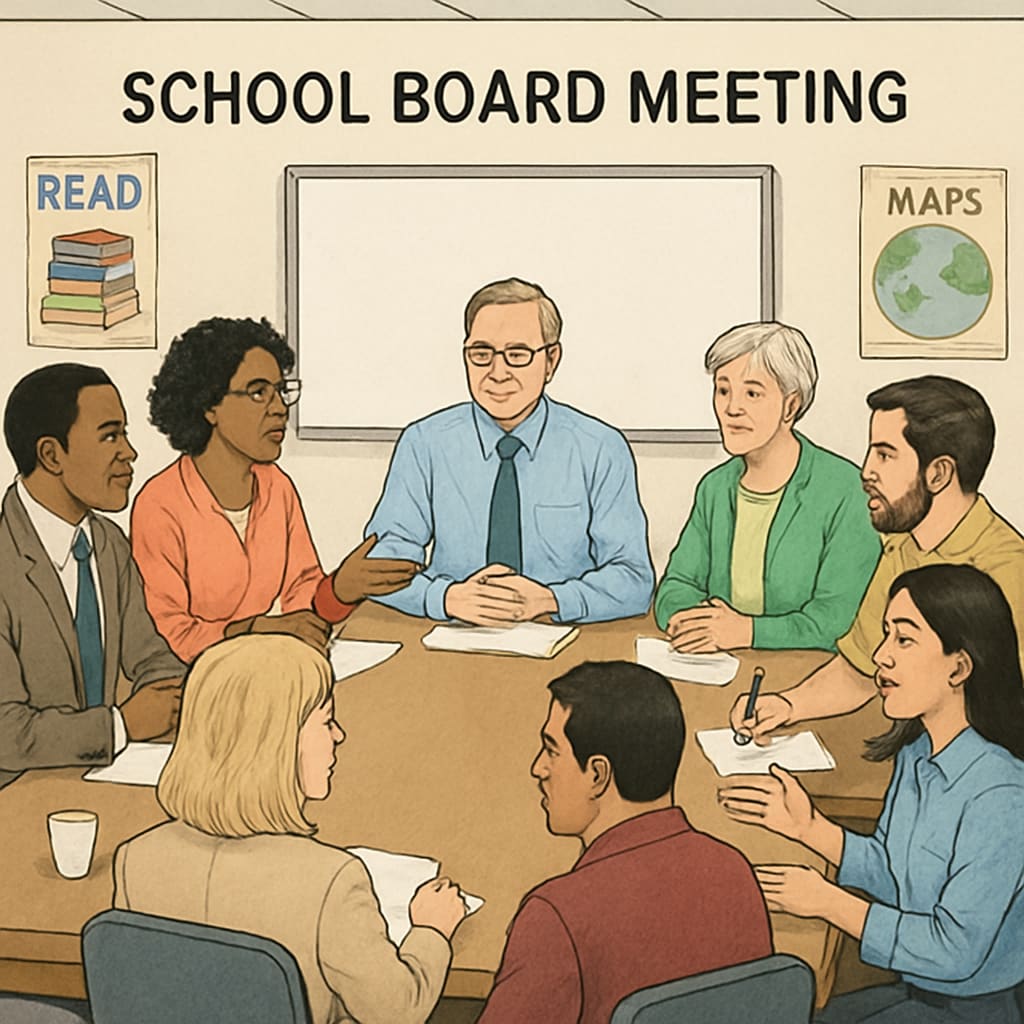Recent protests in a small Maine town have highlighted growing concerns surrounding school governance and safety. At the heart of the controversy is the appointment of a school board member with a history of violent crime, sparking outrage and demands for stricter background checks and accountability. This local incident is now fueling a broader, nationwide conversation about school safety, community oversight, and the ethical standards required for educational leadership.
In this article, we will explore the ethical and legal dimensions of allowing individuals with violent criminal records to hold positions of power in school governance. We will also examine the role of community action in safeguarding children and propose potential reforms to balance safety, redemption, and fairness.
When School Governance Meets Criminal History
School boards play a critical role in shaping the policies and budgets that directly affect students’ education and well-being. However, the recent controversy in Maine has brought attention to a troubling oversight in some districts: inadequate vetting processes for individuals pursuing governance roles.
In this case, the individual in question—whose criminal record includes convictions for violent offenses—was legally elected to the school board. While the law may permit this, the backlash from the community has been swift. Parents and residents argue that someone with a violent past may lack the ethical credibility to make decisions impacting children’s futures.
Yet, defenders of the individual argue that they have paid their debt to society and deserve the opportunity for redemption. This raises a key ethical question: should a criminal record permanently disqualify someone from participating in public service, particularly in roles involving children?

The Community’s Role in School Safety Oversight
Community involvement is an essential component of maintaining transparency and accountability in education. The Maine protest is a clear example of how residents can act as watchdogs, bringing attention to lapses in oversight. However, such actions also come with challenges, including the potential for stigmatization and disproportionate responses.
In this case, community members organized peaceful demonstrations, wrote petitions, and attended school board meetings to voice their concerns. Their actions underscore the importance of grassroots advocacy in holding educational leaders accountable. At the same time, they highlight the need for clear policies that balance public safety concerns with respect for legal rights and rehabilitation.
Experts suggest that increased community participation in school board elections and decision-making processes can lead to more robust governance. For example, requiring candidates to disclose their criminal records or undergo independent vetting could be one step toward enhancing transparency while allowing voters to make informed decisions.
Reform Proposals: Striking a Balance
To address the complex issues raised by this controversy, policymakers and educational leaders must consider reforms that uphold student safety without undermining the principles of rehabilitation and second chances. Below are several potential solutions:
- Enhanced Background Checks: Mandatory criminal background checks for all school board candidates, with results disclosed to the public.
- Clear Disqualification Criteria: Establishing guidelines that outline which types of criminal offenses should disqualify individuals from serving on school boards.
- Community Review Panels: Creating panels of parents and educators to review candidates’ qualifications and provide recommendations.
- Rehabilitation Pathways: Allowing individuals with criminal records to appeal disqualifications by demonstrating evidence of rehabilitation and community service.
These reforms could help create a more transparent and equitable system, ensuring that only qualified individuals are entrusted with overseeing education while respecting the principles of justice and redemption.

Conclusion: A Call for Balance and Collaboration
The Maine school board controversy serves as a powerful reminder of the stakes involved in educational governance. At its core, this issue is about more than just one individual; it reflects broader societal debates about safety, accountability, and the potential for redemption. By fostering open dialogue, implementing fair policies, and encouraging community participation, we can create a safer and more transparent educational system.
Ultimately, the goal should be to protect students while also giving individuals the opportunity to rebuild their lives. Striking this balance will require collaboration between lawmakers, educators, and community members—but it is a challenge worth undertaking for the sake of our children’s futures.
Readability guidance: This article uses short paragraphs, clear subheadings, and a balance of lists and narrative to ensure accessibility. Transition words like “however,” “therefore,” and “as a result” are used to improve flow. Passive voice and long sentences are minimized for clarity.


